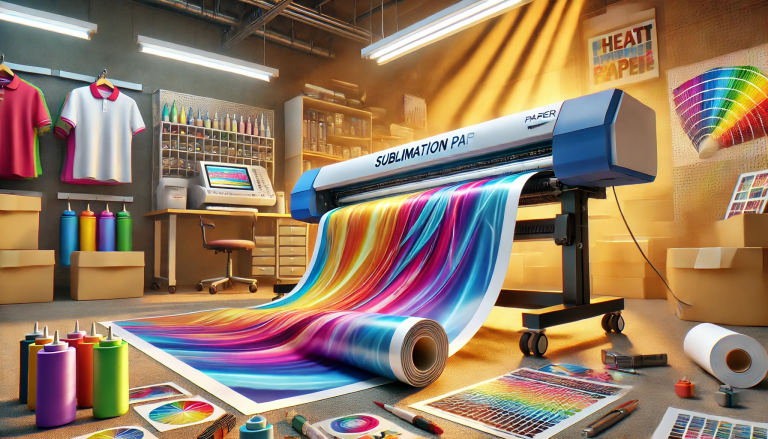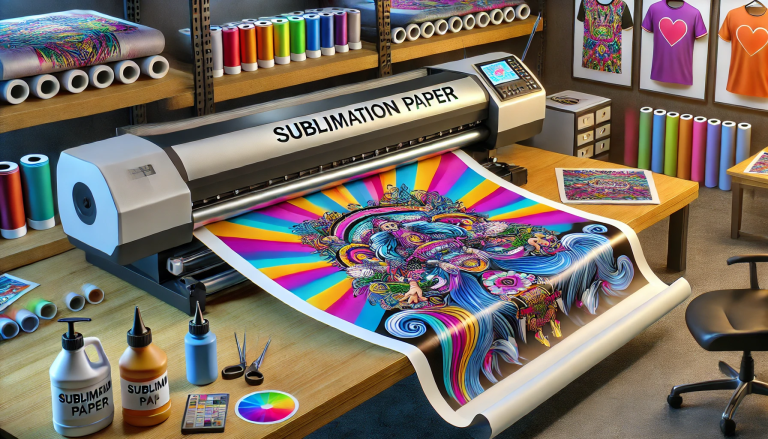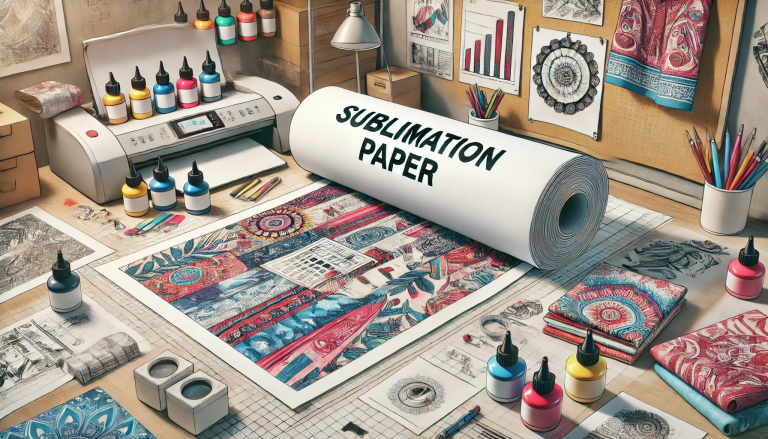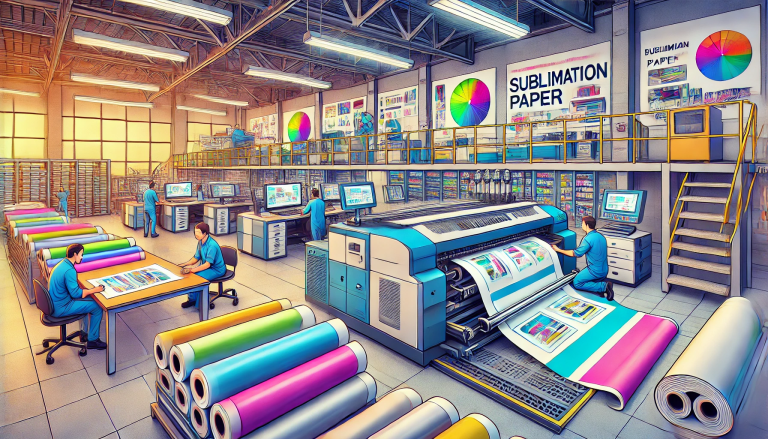“Don’t let Quick Dry Sublimation Transfer Paper printing leave you in the dark – get the transfer you need!” – SUBLIMATIONTRANSFERPAPER – 24inch Inkjet Sublimation Paper Supplier, Industrial Sublimation Heat Paper Manufacturer, Made in China
Introduction
Quick dry sublimation transfer paper printing is a popular method of printing images onto fabric and other materials. However, sometimes the transfer process can fail, leaving you with a blank piece of fabric or paper. There are a few common reasons why this might happen, such as incorrect settings, poor quality paper, or incorrect transfer technique. In this article, we will discuss the most common causes of failed transfers and how to troubleshoot them. We will also provide tips on how to ensure successful transfers in the future.
Understanding the Benefits of Quick Dry Sublimation Transfer Paper Printing and How to Avoid Common Problems
Sublimation transfer paper printing is a popular method of printing that is used to create vibrant, full-color designs on a variety of materials. This method of printing is especially useful for creating custom apparel, mugs, and other items. One of the main benefits of sublimation transfer paper printing is that it is a quick and easy process. The prints are also highly durable and can last for years without fading or cracking.
The process of sublimation transfer paper printing involves transferring a design from a special type of paper to a substrate. The paper is printed with a special ink that is heat-activated. When the paper is placed on the substrate and heated, the ink turns into a gas and is absorbed into the substrate. This process creates a permanent, vibrant image that will not fade or crack over time.
One of the main benefits of sublimation transfer paper printing is that it is a quick process. The entire process can be completed in a matter of minutes, depending on the size of the design and the substrate. This makes it an ideal choice for those who need to produce large quantities of prints in a short amount of time.
Another benefit of sublimation transfer paper printing is that it produces highly durable prints. The prints are resistant to fading and cracking, making them ideal for items that will be used frequently or exposed to the elements. The prints are also highly resistant to scratches and other damage, making them ideal for items that will be handled often.
Despite the many benefits of sublimation transfer paper printing, some common problems can occur. One of the most common problems is that the prints can be distorted if the paper is not properly aligned with the substrate. This can be avoided by ensuring that the paper is properly aligned before it is placed on the substrate.
Another common problem is that the prints can be smudged if the paper is not properly heated. This can be avoided by ensuring that the paper is heated to the correct temperature and for the correct amount of time. It is also important to ensure that the paper is not exposed to too much heat, as this can cause the ink to bleed or fade.
Finally, it is important to ensure that the substrate is properly prepared before the paper is placed on it. This includes cleaning the substrate and ensuring that it is free of dust and debris. This will help to ensure that the prints are crisp and clear.
In conclusion, sublimation transfer paper printing is a quick and easy process that produces highly durable prints. However, it is important to ensure that the paper is properly aligned and heated and that the substrate is properly prepared before the paper is placed on it. By following these steps, you can ensure that your prints will be of the highest quality.
How to Troubleshoot Quick Dry Sublimation Transfer Paper Printing Issues
Sublimation transfer paper is a great way to create vibrant, long-lasting prints on a variety of materials. However, if you’re having trouble getting your prints to come out correctly, there are a few troubleshooting steps you can take to get your prints looking their best.
First, check the settings on your printer. Make sure that you’re using the correct type of paper for your printer and that the settings are correct for the type of paper you’re using. If you’re using a sublimation transfer paper, you’ll need to select the “Sublimation” setting on your printer.
Next, check the temperature of your printer. Sublimation transfer paper requires a higher temperature than regular paper, so make sure that your printer is set to the correct temperature. If you’re not sure what temperature to set your printer to, consult the manufacturer’s instructions.
Finally, check the quality of your transfer paper. Make sure that the paper is free of any dust or debris, and that it is not expired. If the paper is expired, it may not transfer correctly.
By following these steps, you should be able to troubleshoot any issues you’re having with your sublimation transfer paper printing. If you’re still having trouble, contact the manufacturer of your printer or transfer paper for further assistance.
Exploring the Reasons Why Quick Dry Sublimation Transfer Paper Printing is Not Transferring
Sublimation transfer paper printing is a popular method of printing images onto fabric, but it is not always successful. If the transfer paper is not transferring correctly, there are a few potential causes that should be explored.
The first potential cause is incorrect temperature and pressure settings. Sublimation transfer paper requires a specific temperature and pressure setting to transfer correctly. If the settings are too low, the transfer will not be successful. It is important to ensure that the temperature and pressure settings are correct before attempting to transfer the image.
The second potential cause is incorrect paper type. Sublimation transfer paper is available in a variety of types, and each type has its specific requirements. It is important to ensure that the correct type of paper is being used for the transfer.
The third potential cause is incorrect ink type. Sublimation transfer paper requires a specific type of ink to transfer correctly. If the wrong type of ink is used, the transfer will not be successful. It is important to ensure that the correct type of ink is being used for the transfer.
The fourth potential cause is incorrect transfer time. Sublimation transfer paper requires a specific amount of time to transfer correctly. If the transfer time is too short or too long, the transfer will not be successful. It is important to ensure that the correct transfer time is being used for the transfer.
Finally, the fifth potential cause is incorrect transfer paper. Sublimation transfer paper is available in a variety of sizes and thicknesses, and each type has its specific requirements. It is important to ensure that the correct type of paper is being used for the transfer.
By exploring these potential causes, it is possible to determine why the sublimation transfer paper is not transferring correctly. Once the cause has been identified, it is then possible to take the necessary steps to ensure that the transfer is successful.
Conclusion
In conclusion, Quick Dry Sublimation Transfer Paper printing may not be transferred due to a variety of reasons, such as incorrect settings, incorrect paper type, or incorrect ink type. It is important to ensure that all of the settings and materials are correct before attempting to print with Quick Dry Sublimation Transfer Paper. If the problem persists, it may be necessary to contact a professional for assistance.





